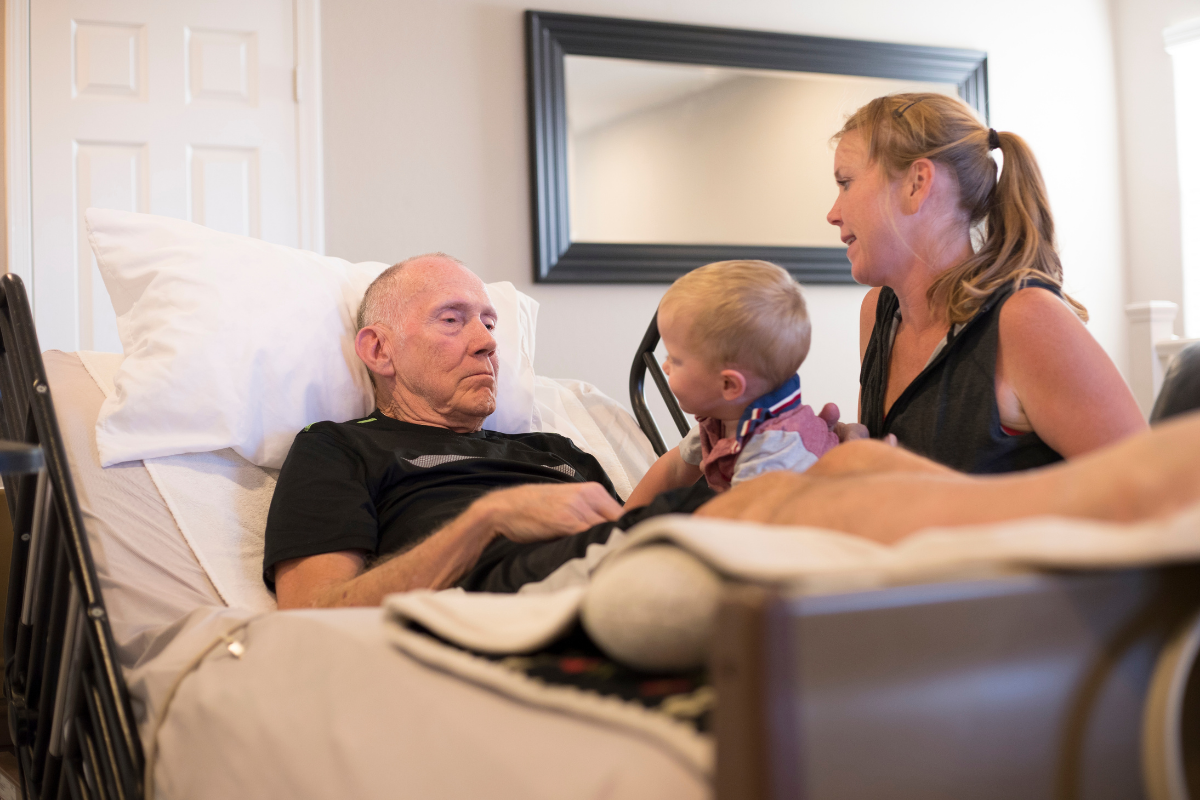Respecting Patient Choices

When approaching end of life, healthcare decisions about care are often made collaboratively between patients, their family, and their physician. In these conversations, it is important that both family members and healthcare providers respect the patient’s wishes – even if they are no longer able to communicate them.
Understanding Your Role as a Caregiver
Family caregivers play an essential role in patient care at end of life. They often wear a number of hats, providing some combination of physical care, emotional care, financial support, and logistical support, while acting as a resource and advocate for their loved one.
If your loved one is able to communicate their wishes, you can offer to help weigh the pros and cons of treatment options, consider long- and short-term expectations, and assist in navigating the healthcare system and any insurance considerations. You may seek out additional information, talk through options with healthcare providers, assist in coming up with a list of questions, and encourage your loved one to speak with a therapist, spiritual guide, counselor, or social worker about their goals and options.
If you disagree with a decision your loved one makes about their care, it is important to remember that it is your loved one’s decision to make. They may ask for your opinion and still make a different choice. Even if you don’t agree with their choice, it is important to support your loved one and help them communicate their decision just as you would want someone to support your final decisions.
If your loved one is incapacitated and no longer able to communicate their wishes, you may be asked to decide on their behalf. Ideally, your loved one would have created an advance directive to make their wishes clear or at least discussed their wishes informally. If so, follow the intent of their wishes. If there is any doubt, speak with your loved one’s healthcare team who can explain the options and assist you through the healthcare decision-making process.
If your loved one has not made their wishes known, work with your loved one’s healthcare team to make decisions that are in alignment with what you know of their values and goals.

Understanding the Physician’s Role
Similar to the role of a family caregiver, physicians and other healthcare providers must respect their patient’s autonomy and right to direct their care, even if they choose to not follow the recommendations of healthcare providers.
A key element of respecting patient choices is providing them with the option of true informed consent. This means providing the information needed to understand the risks and benefits of a proposed treatment plan, as well as providing reasonable alternatives – including the option of discontinuing treatment, so they can make the best possible decision on their own.
Since patients often make healthcare decisions alongside their family, physicians must balance supporting the patient’s individual wishes against undue coercion while still understanding that sometimes the patient may choose to put their family’s wishes ahead of their own.
When a patient is unable to communicate their medical wishes, their healthcare team must work with the family to determine who will have the final say in medical decisions. In some states, there may be laws in place that determine the order of priority for who can make decisions when a patient does not have an advance directive or healthcare power of attorney in place.

Documents That Help Honor Patient Wishes
All adults, regardless of their age or health, should have a plan in place for serious accidents or illness. This plan will likely change and evolve over time as priorities shift. Putting these wishes in writing is a great kindness to family members who may be forced to make difficult decisions in a crisis. The tools below provide them with an understanding of what their loved one’s wishes would be and provides the legal authority to make them:
- An advance directive or living will state what medical care an individual wishes to receive if they can no longer speak for themselves. It can include information about life-saving measures, treatments they do or do not want to receive, their vision for their funeral, or other information they would want physicians and loved ones to know.
- A healthcare power of attorney names the person who will make the healthcare decisions if the individual is no longer able to make them themselves. It can be a family member, a friend, an attorney, or another person they trust to follow their healthcare wishes.
- A financial power of attorney names the person who will make the financial decisions if the individual is no longer able to make them themselves. It does not need to be the same person as their healthcare power of attorney.
Crossroads Hospice & Palliative Care supports patients facing serious or terminal health issues. Call 1-888-564-3405 to learn more about hospice eligibility.
If you found this information helpful, please share it with your network and community.
Copyright © 2022 Crossroads Hospice. All rights reserved.




